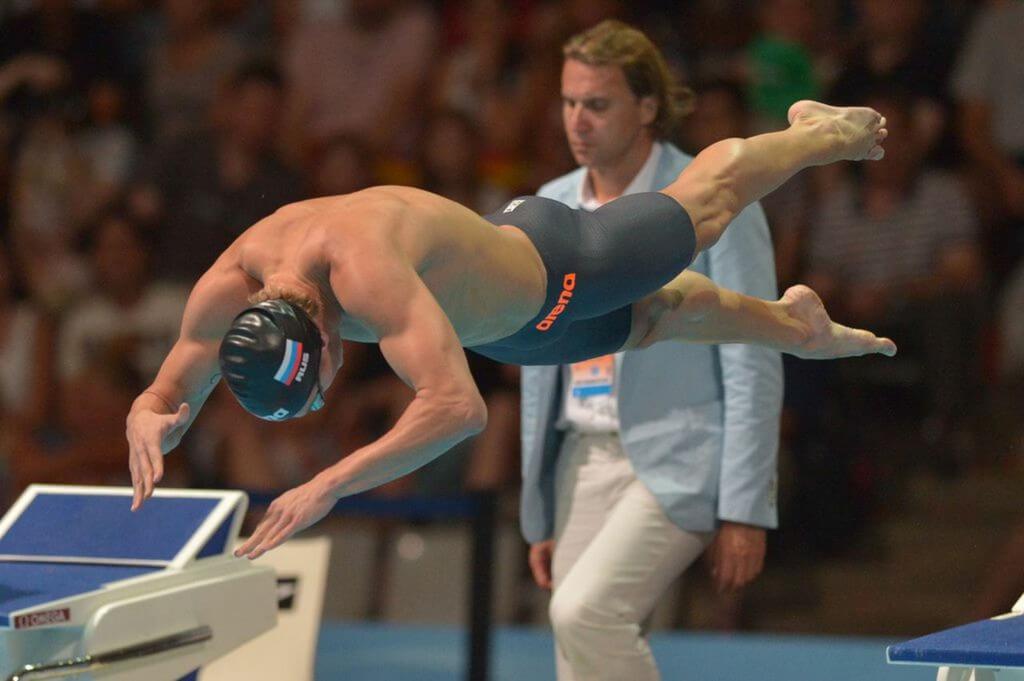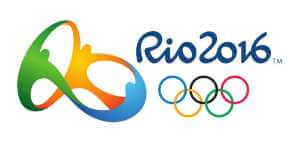Russia’s Medal Hopes Could Suffer with Efimova, Morozov and 5 Others Banned From Rio


Editorial Coverage Sponsored By FINIS
By David Rieder
When the International Olympic Committee announced Sunday that it would not issue a blanket ban on Russian athletes at the Olympic Games despite confirmations of state-sponsored doping, it came with a caveat: about halfway through the report was item No. 3, which read that any athlete who had previously been sanctioned for use of performance-enhancing drugs would be barred from Rio.
Instantly, Yulia Efimova was out. Efimova’s status for the Games had been uncertain all spring after she tested positive for meldonium—just added to the banned list on January 1. She was officially cleared to compete in Rio July 12, but that invitation has been revoked as Efimova does have a previous failed test on her record.
Efimova was suspended for 16 months in the fall of 2013 after testing positive for 7-Keto-DHEA, but she returned in time for last summer’s World Championships. In Kazan, she took down Ruta Meilutyte to win the world title in the 100 breast. In 2016, she holds the second-fastest time in the world in both the 100 (1:05.70) and 200 breast (2:21.41), and so she looked like a definitely possibility for one or more medals in Rio.
Swimming World’s official Olympic predictions come out later this week. Efimova was originally on that list but no longer. While the 200 figures to be a tightly-packed final with eight women having already been under 2:23 this year, only three women had broken 1:06 this year in the 100. Efimova has also won a medal in the 100 breast at each of the past four World Championships.
We predicted one other medal for Russia in swimming—Vladimir Morozov in the men’s 100 free—but FINA announced this morning that Morozov is out as well. In total, FINA declared seven Russian swimmers ineligible to swim in Rio—four who had tested positive in the past (including Efimova) and three others who had been listed in the World Anti-Doping Agency’s Independent Person (McLaren) report released last week.
Morozov, who has no record of a suspension, was among that later category, and he will miss Rio. Morozov helped Russia to a bronze in the 400 free relay in London and also won a silver in the 50 free at the 2013 World Championships. He was one of the favorites for gold in the 100 free last summer in Kazan before a false start in the semifinals took him out of the event altogether.
Morozov currently ranks ninth in the world in the 100 free with a 48.09, and a bronze medal did not seem like that much of a stretch. But with Morozov out, our current predictions have Russia getting shut off the podium entirely.
Among the five others banned, only Daria Ustinova looked like a serious contender for an individual medal. She ranks fifth in the world in the 200 back at 2:06.92 and holds the Junior World Record in that event, but like Morozov, she was also named in the McLaren report.
So, too, was Nikita Lobintsev, a finalist in the 400 free in Beijing and in the 100 free in London—and also a two-time Olympic medal winner on relays. But the now-27-year-old was likely to be little more than relay depth this time around.
Now, Russia’s medal hopes rest on the shoulders of 19-year-old Evgeny Rylov, who in April set a European record in the 200 back with a 1:54.21 and last summer won a bronze medal in the event in Kazan. Anton Chupkov has an outside shot in the men’s 200 breast, but that’s really about all on the individual level.
Russia did win silver in the 400 free relay at the Worlds last year, but that was with Morozov splitting 46.95 and Lobintsev also contributing a quick leg. (The Russians also can’t count on both the Americans and Australians bomb out in prelims again this year.) The 800 free relay was fourth in Kazan, but by virtue of a positive doping test on his résumé, third leg swimmer Mikhail Dovgalyuk is also out of the Olympics.
The critics of the IOC’s decision to allow Russian athletes to compete in Rio are many, and they are loud. The issue of doping—and the Russian scandal in particular—figures to come up again and again during the Games, but maybe not at the pool. The decisions that the IOC and FINA have made these last two days may knock Russia totally off the podium.


- OFFICIAL SITE FOR RIO
- RIO COMPETITION SCHEDULE
- WHERE TO WATCH LIVE VIDEO OF OLYMPICS
- USA MEN'S SWIMMING TEAM
- USA WOMEN'S SWIMMING TEAM
- USA DIVERS GOING TO RIO
- USA WOMEN WATER POLO TEAM
- SWIMMING MEDAL PREDICTIONS
- FULL DAY 1 RESULTS
- FULL DAY 2 RESULTS
- FULL DAY 3 RESULTS
- FULL DAY 4 RESULTS
- FULL DAY 5 RESULTS
- FULL DAY 6 RESULTS
- FULL DAY 7 RESULTS
- FULL DAY 8 RESULTS
- WOMEN'S 10K OPEN WATER RESULTS
- MEN'S 10K OPEN WATER RESULTS
- FULL OLYMPIC SWIMMING RESULTS




Cheaters are bad for the sport, for morale, and our youth. Efimova got what she deservesk however, Morozov is not guilty and therefore should be allowed to compete.
It’s surprising to me that there’s so much anger toward Efimova. Maybe people suspect her of serious doping and figure the mistake she made with DHEA is just the tip of the iceberg.
For those who don’t know, DHEA is banned for elite athletes but is available over the counter in the United States. DHEA most likely doesn’t help an athlete, but it is a steroid so it is reasonable to ban it just in case. It’s probably not particularly good for you, and if it weren’t for politics and lobbyists, it would not be available at your local GNC here in America.
Efimova listed L-carnitine on her doping form. This is a legal supplement, okay for use by elite athletes. Unfortunately, she ran out of her regular supply and bought some crap at GNC and didn’t read the label and showed up in an out-of-competition test with DHEA in her system.
So she got slammed and lost medals and money and records and time. All athletes have to read every ingredient list super carefully because there are over the counter substances that are banned.
Medonium is another matter of course. Efimova, like many Russian athletes, including Sharapova, takes melodonium as a supplement. It wasn’t banned for elite athletes until recently and it stays in your system for a while after you stop taking it. Meldonium is a powerful drug and is useful for certain medical conditions and probably is performance enhancing.
Meldonium should have been banned for athletes a long time ago. The ban is recent and people like Efimova have to be given time to let the drug get cleared from their system.
Maybe people who think Efimova is a cheater regard her use of meldonium as slipping through a loophole or something like that. It seems like a lot to ask of a Russian athlete: “everyone you know legally takes meldonium, but it really should be illegal, so you should voluntarily not use it.”
In my view, based on what’s been published about Efimova so far, she appears to be making every effort to follow the rules and not engage in Lance Armstrong-type deceptions. She’s been cleared for the meldonium use since it was just recently banned and it takes for the drug to be purged. The DHEA “use” was clearly an accident due to the odd (political) fact of the steroid being available over the counter in the United States.
Assuming there’s nothing I’m missing here, I hope she gets treated fairly.
So what? They shouldn’t have cheated then. I do not feel sorry for them at all!